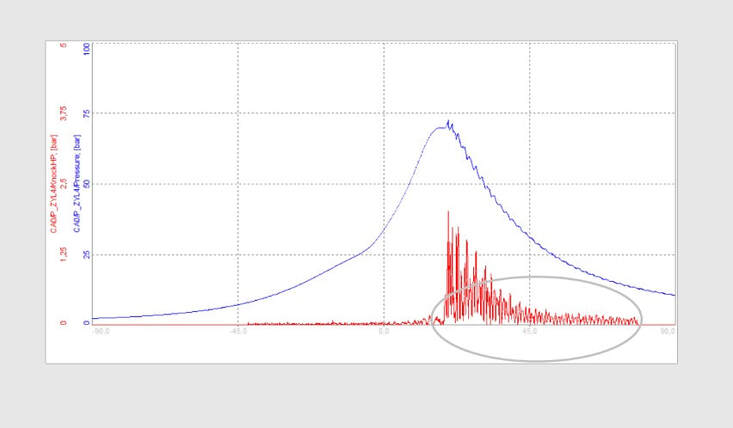IC Engine Knocking Detection
Knocking is spark-ignition internal combustion engines occurs when combustion of some of the air and fuel mixture in the cylinder does not result from propagation of the flame front ignited by the spark plug, but one or more pockets of air/fuel mixture explode outside the envelope of the normal combustion front.
The fuel-air charge is meant to be ignited by the spark plug only, and at a precise point in the piston's stroke. Knock occurs when the peak of the combustion process no longer occurs at the optimum moment for the four-stroke cycle.
The robust knocking detection algorithm is based on comparing the signal before and after the TDC (TDC is the point in which the piston in the number one cylinder position of your engine is at its highest point on the compression stroke).
Knocking is spark-ignition internal combustion engines occurs when combustion of some of the air and fuel mixture in the cylinder does not result from propagation of the flame front ignited by the spark plug, but one or more pockets of air/fuel mixture explode outside the envelope of the normal combustion front.
The fuel-air charge is meant to be ignited by the spark plug only, and at a precise point in the piston's stroke. Knock occurs when the peak of the combustion process no longer occurs at the optimum moment for the four-stroke cycle.
The robust knocking detection algorithm is based on comparing the signal before and after the TDC (TDC is the point in which the piston in the number one cylinder position of your engine is at its highest point on the compression stroke).

